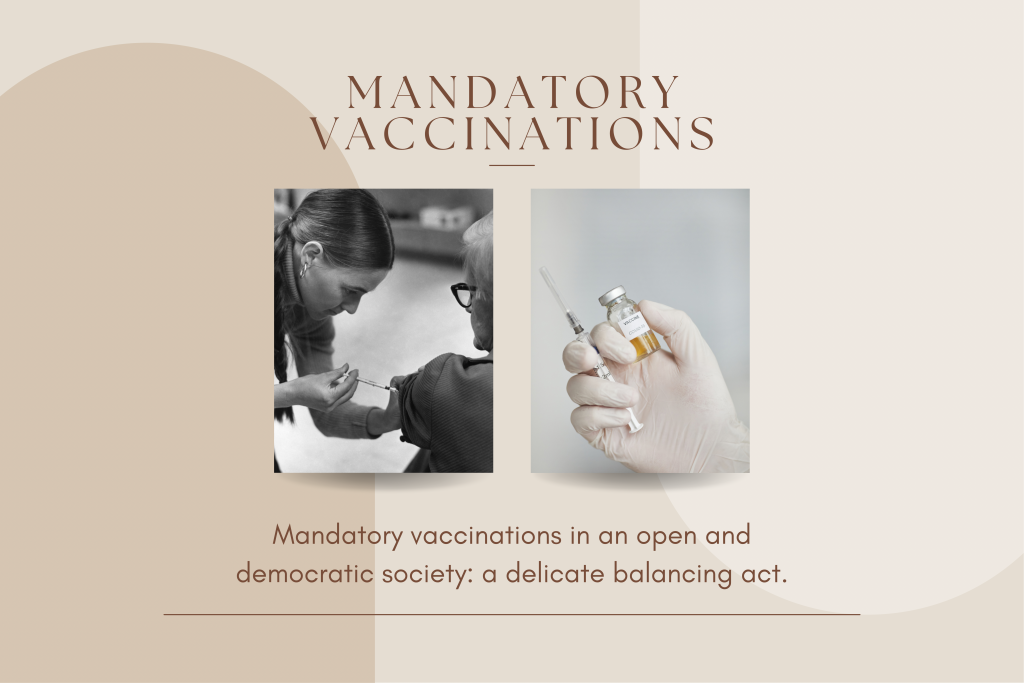Mandatory vaccinations in an open and democratic society: a delicate balancing act

Imposing a vaccine mandate in a democratic society governed by a constitution which entrenches and protects fundamental human rights can, and to-date has raised certain concerns around the validity and lawfulness of such a decision taken by government. However, as is sometimes the case with constitutional right protection, a delicate balancing act is required, which, among other considerations, takes into account the specific circumstances and the potential impact on the public interest as a whole.
As part of the supreme law of the Republic of South Africa,Section 2 of the Constitution renders any law or conduct inconsistent with it invalid and unlawful and subsequently protects certain individual human rights from infringement. Noteworthy are the right of every person to equality (Section 9), human dignity (Section 10), life (Section 11), and freedom and security (Section 12)1.
More specifically, the right to freedom and security includes the right of every person to bodily and psychological integrity, which affords every person the right to, among other things, security in and control over the body.
Nevertheless, Section 36 of the Constitution provides for limitations of these rights. Such limitations must be done via a law general application, such as where the state may enact a law that renders Covid-19 vaccination mandatory. Such a decision is also required to be:
“reasonable and justifiable in an open and democratic society, based on human dignity, equality and freedom, taking into account all relevant factors, including
a. the nature of the right;
b. the importance of the purpose of the limitation;
c. the nature and extent of the limitation;
d. the relation between the limitation and its purpose; and
e. less restrictive means to achieve the purpose.”
In this regard, the state may be compelled to strike a balance between the protection of fundamental human rights versus the need to implement a mandate which could serve to infringe these rights yet have a greater impact and benefit on the broader public interest. Accordingly, mandatory vaccination legislation can serve to be appropriate in the correct circumstances. However, such a decision should not be made before a comprehensive exploration of any and all avenues available to the state to achieve the desired outcome has been conducted. In this case, it means the protection and enhancement of the health and safety of the population.


